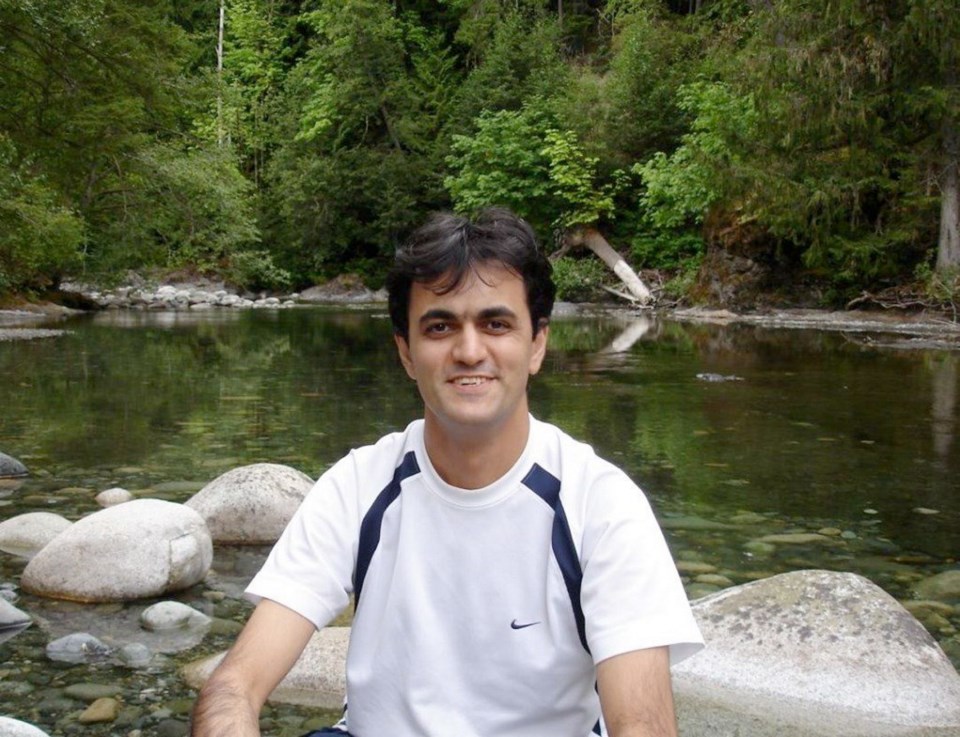 It was eight years ago today that Victoria’s Saeed Malekpour was snatched off a Tehran street and thrown into Iran’s notorious Evin prison.
It was eight years ago today that Victoria’s Saeed Malekpour was snatched off a Tehran street and thrown into Iran’s notorious Evin prison.
That means it has been eight years that his kid sister Maryam Malekpour has been fighting for his release.
Yet it feels like he’s no closer to freedom than he was before. In fact, Maryam feels let down by Canada’s year-old Trudeau government, which she says is doing less for her 41-year-old brother than the Harper Conservatives did.
“When the Liberals were elected I thought it’s a good thing for Saeed,” says Maryam, on the phone from Vancouver. “I thought they care more about human rights than the Conservatives did.” She no longer believes that.
Saeed’s story has been told here before. A gifted software designer who had worked for several top Iranian companies, he came to Canada in 2004 with his wife, Fatima Eftekhari, who wanted to study in the West.
In 2006, they moved to Victoria, where Malekpour freelanced as a website designer while Eftekhari completed her doctorate in medical nanotechnology and taught at the University of Victoria. They earned permanent-resident status.
Their Saanich landlords described them as the kind of tenants who would shovel the driveway unbidden, or help in the garden. Saeed was gregarious, friendly, compassionate, helpful.
Saeed was planning to take his master’s degree at UVic in 2008 when he was called back to Tehran to be with his dying father — only to be arrested and charged with distributing porn.
Nonsense, his supporters say. All he had done was design software that was used, without his knowledge, to upload images. It was like charging the inventor of the typewriter with authoring the contents of a book.
The real story, they say, is that Saeed had been grabbed by agents of the Iranian Revolutionary Guard, who were clamping down on computer use to intimidate the country’s restive young people.
Last month, the international digital-rights group Electronic Frontier Foundation put it like this: “Arresting a coder living in the West and accusing them of being a foreign spy running a Persian language porn network was intended to paint the ’Net as a channel for corrupt Western influence — and to demonstrate that no one, not even coders living in a foreign country, could escape punishment.”
Malekpour was thrown in Evin, where he was beaten and tortured into a forced confession — one he recanted in a letter smuggled out of prison. “Sometimes, they used extremely painful electrical shock that would paralyze me temporarily,” he wrote. “Once, in October 2008, the interrogators stripped me while I was blindfolded and threatened to rape me with a bottle of water.”
Sentenced to death (later commuted to life in prison) he spent more than a year in solitary confinement. Maryam says during that time her brother would escape inside his head, closing his eyes and imagining life on Vancouver Island, where he used to ski Mount Washington, swim the Sooke Potholes, stroll Cadboro Bay beach and hike Mount Doug. Sometimes he would picture himself running on a road through a park.
Maryam advocated for her brother so strenuously that in 2012 she was forced to flee to Canada to avoid arrest. Trained as an engineer, she now works as a project manager for a Vancouver mechanical contractor.
She leads her own lonely existence, speaking to her brother two or three times a week by the telephone he is now allowed to use in prison. Lately, he has sounded down. “Before, he was more optimistic,” Maryam says. “He thought the Canadian government would help him.”
Maryam wrote Prime Minister Justin Trudeau and Foreign Affairs Minister Stéphane Dion after last year’s election, but the reply from Dion was disheartening. Since Saeed is a permanent resident of Canada, not a citizen, there’s not much the government can do, she was told.
Maryam scoffs at that argument. Iran doesn’t recognize dual citizenship anyway, so Saeed’s status in Canada is irrelevant to Tehran. The Conservatives treated him like a Canadian, she notes.
All this comes as Canadian-Iranian tensions (the Conservatives cut diplomatic relations in 2012) appear to be easing. Montreal academic Homa Hoodfar was freed last week after four months in prison in Iran, where she had been arrested as part of what observers say is a campaign by hardliners to use dual citizens as leverage with the West. Reportedly, her release came after Dion and his Iranian counterpart had a quiet word at the United Nations.
Maryam is at a loss to know why her brother doesn’t get similar treatment. “It doesn't make any sense to me. As a human being, I asked the Canadian government to help me, and they don’t do that.”
Foreign Affairs turned down an interview request, citing the Privacy Act, but said it remains “seriously concerned” about Saeed. “The challenges posed by the absence of Canada's diplomatic presence in Iran greatly limit our ability to provide support in such cases,” a representative said.
Maryam vows to keep fighting regardless. “I have to be his voice.”



